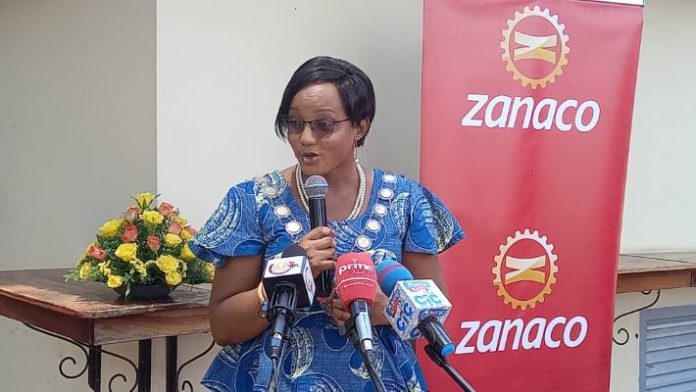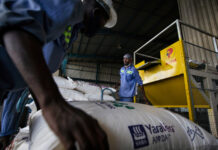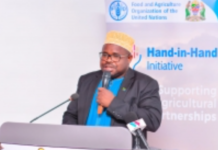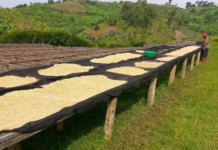With barely a month before the COP27 in Egypt, Zambia has heightened awareness on the effects of the climatic change effects that has changed the environmental landscape and threatens global food security with a call for various players to join hands in seeking durable and lasting solutions and reverse the losses.
Officiating at the gathering of various players, traditional leaders included ahead of the climate festival planned for Livingstone next month, near the border with Zimbabwe next month as a build up to the United Nations Framework Convention on Climate Change (UNFCCC or FCCC) (COP 27) ahead of the conference to be hosted in Egypt, Zambia says the awareness was important in redressing the climate change effects and that the raised voices would be an impetus to heighten the lobby for solutions.
Zambia, being the chair of the Africa group of negotiators, has taken the leading role and the country remains instrumental in leading key processes for the Africa region to place us in a better bargaining position at COP27 around current concerns and contentious issues around international carbon markets, pledges and commitments to reduce emissions and phase out fossil fuels, financing commitment shortfalls experienced year in and out.
Minister of Green Economy and Environment, Collins Nzovu during the media launch of the Zambezi Live Light Climate Festival encompassing Zambia and the African region noted the partnership that has existed over the years in highlighting the importance of the Zambezi shared water course, the growing risk this faces and the partners’ unwavering desire to save the resource.
It remains the Government’s desire to see a sustained and more resilient Zambia that can embark on an inclusive green growth trajectory and unlock social and economic opportunities that are sustainable for her people. Attaining the vision needs untiring partnerships with various players as espoused under the Paris agreement and the Sustainable Development Goals (SDGs) ambition of concerted efforts on climate action (SDG13) and building effective partnerships for the goals (SDG17).
The Zambezi climate festival, an inaugural 6-day festival, the first to be held at the heart of the Zambezi basin- Livingstone and making its debut in the region strives to bring together a broad spectrum of actors- social and corporate influencers, policy makers, environmental experts.
Others are African celebrities and entertainers, businesses, urban developers and municipalities to raise awareness of the role we can play in combating the climate crisis facing the Zambezi basin while collaborating with the traditional leaderships.
Minister Nzovu, in a speech read for him by Permanent Secretary John Msimuko noted that like many parts of the African continent, Zambia’s connection to nature remains intertwined to traditional governance systems linked to royal houses and the commitment by the local tradition.
This comes under the Chieftainship of senior Chief Mukuni, whose authority sought to join forces climaxes the importance of the climate festival and the role of traditional leadership in rendering supporting climate action efforts at the local and regional level in seeking solutions to many contentious concerns.
Key concerns include among others, international carbon markets, pledges and commitments to reduce emissions and phase out fossil fuels, financing commitment shortfalls experienced year in and out. The holding of the climate festival remains a key awareness forum to highlight the concerns around the effects of climate change and stress the role all players and various governments are obliged to play in seeking solutions.
“There is no doubt that the climate festival is a vehicle that can and should be used to bring people of different walks of life together to rally behind a common cause- that affects all of us- Industry, health, education, women, children and everyone alike.”
Livingstone Mayor, Constance Muleabai implored corporate institutions to join hands with local authorities in promoting the greening agenda in fighting some of the ills buffeting society noting that utilisation of the state-resources provided under the Constituency Development Fund (CDF), alone is not enough to achieve the green agenda goal.
And Wateraid country director Pamela Chisanga noted how climate change has changed the global course of destiny as it was happening in an era of increased demand for water, Reduced water availability and increased environmental degradation, concentration of contaminants in shrinking surface demographic change and groundwater bodies.
Droughts, she noted, affect hygiene behaviours due to reduced availability of water thus posing a serious challenge to public health and placing greater pressure on healthcare systems, leaving many people most vulnerable to the impacts of climate change hence the need for access to climate resilient, inclusive, sustainable Water sanitation and hygiene (WASH).
“Water, sanitation and hygiene services and behaviours reduce the overall disease burden thus enabling people to better withstand the difficulties that climate change brings. Water supply services increase the amount of clean water people have in times of scarcity. Increased water storage provides a critical buffer delivering water when and where it is needed.”
WASH seeks to form a central part of any climate change adaptation strategy as exhibited by the collaboration with the government which has helped in piloting various innovative technological options such as drilling bigger, deeper and fewer boreholes but covering the same or more people through solar power and distribution networks while changing the ‘pit latrine narrative’.
“We have also shifted from constructing pit latrines that pollute the underground water sources to constructing ablution blocks that reduce underground pollution.”
Ms. Chisanga notes however that while players are keen to seek solutions to the effects of the climate change, there is need to shift from addressing what has happened to what is projected to happen adding:
“For us to respond to the impact of climate change in a more sustainable manner, we need to shift from addressing what has already happened (band aid approaches) to what is projected to happen (anticipatory approaches).”
Wateraid calls on the Government to consider the possibility of ensuring all the CDF programmes meet the adaptation standards and: “Whatever we do must build resilience”.
WaterAid, a global campaigner for clean water, improved sanitation and proper hygiene also seeks to transform the lives of the poorest and most marginalised people by improving access to safe water, sanitation and hygiene.
It further focuses on sanitation, hygiene and water for basic needs in households, communities and institutions. Climate change leads to changes in the water cycle that can impact on the Non Governmental Organisation’s mission.
The COP 27 conference takes place from 6-18 November 2022 in Egypt’s coastal city of Sharm El-Sheikh, having been shelved from the initial dates of November 7 to the 18.
The gathering of various players is to make COP27 an “implementation COP” through urging action across prior agreements through all areas of climate change with a focus on protecting people from the immediate impacts of climate change, ensuring no one is left behind.
Recently, Wael Aboulmagd, Egyptian Special Representative of the COP27 warned against applying ‘kid gloves’ towards the fight against the effects of climate change.
“We cannot underplay the threat that humanity is facing due to climate change; 4% of global economic output could be lost by 2050 due to climate change and 5 million people die every year because of temperature extremes … which will only get worse as temperatures increase.”










[…] ‘Zambia trumpets climate Change awareness’ Farmers Review Africa […]
Comments are closed.